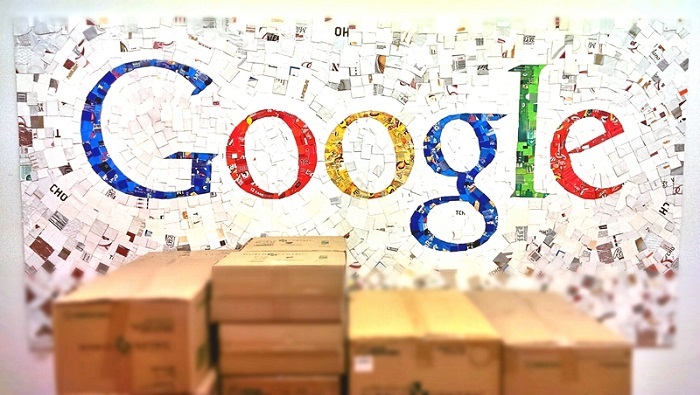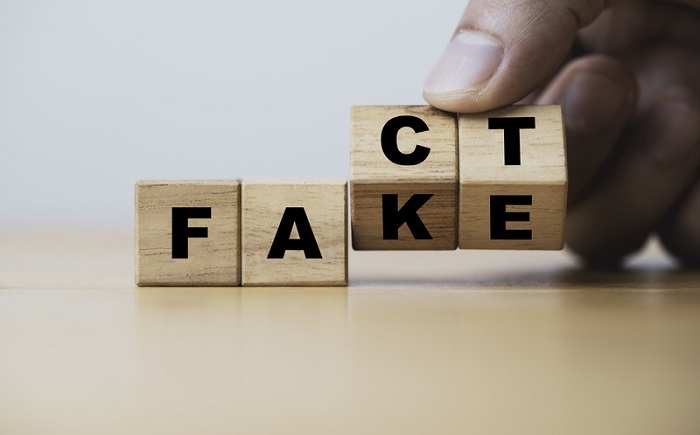
 Data Structure
Data Structure Networking
Networking RDBMS
RDBMS Operating System
Operating System Java
Java MS Excel
MS Excel iOS
iOS HTML
HTML CSS
CSS Android
Android Python
Python C Programming
C Programming C++
C++ C#
C# MongoDB
MongoDB MySQL
MySQL Javascript
Javascript PHP
PHP
- Selected Reading
- UPSC IAS Exams Notes
- Developer's Best Practices
- Questions and Answers
- Effective Resume Writing
- HR Interview Questions
- Computer Glossary
- Who is Who
How to Avoid Google's Penalty?
People today know what digital marketing is and how important it is for their survival in this fast-paced global world. For them, their competitor is not only the company standing next to them but all the possible companies in the world that are on the internet. Companies will now try any and all methods to improve their ranking on the Google search page. There are different malpractices that a company does to rank better in the search engine, and some of them could be Developing poor-quality content Companies have understood that for better ranking in Search Engine Optimization (SEO), it is crucial to use as many keywords as possible, so sometimes they create content that is overloaded with keywords but has no actual meaning.
Companies add keywords in white text behind the page and quality content on the front, and hence the ranking improves even though the content is not that good, among others.
In this article, we will be understanding why Google has to come up with the penalty system, what steps companies can take in order to avoid Google penalties, and what happens if you are charged with Google penalties.
The Motto of Google

Google aims to improve the search experience of its users. Google wants to satisfy users' desires in the best way possible, but companies' digital marketing mistakes are getting in the way. Companies are attempting to defraud consumers, and Google, as the platform, holds them accountable. To ensure that the viewers are not getting cheated and do not leave Google as the browsing website, Google is coming up with different updates, and some of them are
Google Panda update
Google Penguin update
Google Hummingbird Update
Google's latest mobile-friendly algorithm update, aka "Mobilegeddon and others
These updates are mandatory for every website registered with Google, and all of these updates take a closer look at the content published on the website, the backlinks, the relevancy of the website, and others.
How Can Google Penalize Your website?

There are three ways in which you can see if you have been penalized by Google.
Manual action ? when someone sitting in the Google office visits your website and finds it to be faulty, hence penalizing you. You will receive an update on your Google page if that happens.
Algorithmic filters ? when the Google algorithm has applied filters and found out that your website is using black hat SEO techniques or other faulty strategies to generate traffic, Google sends no notification for this, and you can check it only by comparing your website traffic over a period of time.
Core updates ? Here, Google comes up with new updates to improve the user search experience, and your pages lose their importance in the ranking algorithm.
Steps That Companies Can Take to Avoid Google Penalties
Avoid irrelevant link framing ? Companies may add extra backlinks on other websites to increase traffic on their page, which might not even be relevant. For example, the link says "tap to learn more about the top three automobiles of 2023," but the page viewers land on after tapping on the link is one of the best places to visit in Goa. These two subjects are irrelevant to each other, and companies are charged for this malpractice. Companies should not mislead customers and should only include relevant backlinks to legitimate websites that can assist customers. Link framing is a black hat SEO technique that provides consumers with a plethora of spammy and low- quality content. With the Google Panda and Penguin updates, many companies were penalized for the same.
Create quality content ? Companies know that SEO-rich content with backlinks is going to improve their ranking and create traffic on the website or page, but good content is what retains the viewers. Google also places great emphasis on quality content. Your website content or articles should aim to answer the consumer's questions and assist them with their problems. In the end, you can sell your product, but too many ads, backlinks, and SEO will also deteriorate the content. Please ensure that there are no grammatical or typing errors, that the language is simple and easy to understand, and that relevant images are included wherever they are required. Another thing to keep in mind is that lengthy content with in-depth research is more preferred by Google.

All the articles on the first page of the Google search had more than 2,000 relevant keywords. There are thousands of websites offering similar content, but Google can only rate the top 10 on its first page; therefore, your rich content is what is going to get you on top. So do your analysis and create good content.
Focus on Linking Domain Relevancy ? Companies should focus on Linking Domain Relevancy (LDR) when creating website content. LDR means that you should generate a link that is relevant to your niche. For example, if you are working in the niche of the beauty or cosmetics industry but use the word "dogs" in your link, it will create confusion and mislead the viewers. Google's Penguin update penalized all such websites that have misleading LRDs or backlinks. To avoid Google penalties, businesses should focus on creating quality backlinks and low-quality links (LDR).
Avoid fake social media fans or followers ? When you attach your social media profile for viewers to visit for more information on your website, Google will scrutinize the same. It is risky to obtain bogus social media followers and then use them as a reference point on your Google+ page. Google will penalize marketers for doing so. Ways in which you can understand if the profile has gained fake followers are by seeing their number of followers, likes, views, comment ratio, or the number of posts to followers ratio. For example, seeing an account with two posts, six likes, and 1,000 followers will appear suspicious.
Diversify your anchor text ? After reading rich, relevant, and SEO-friendly content, it might seem odd to the viewer to see buttons like "click here," "like this post," and others. Companies should diversify their anchor text in order for their content to sound genuine to both the viewer and Google. This text should contain a mixture of the brand name, domain-related keywords, HTTPS, and others. There is no perfect mix, but a mix is better than those single words.
Security certificate ? for you to pass through as a website that is trustworthy for both the viewers and Google, it is important for you to have a legitimate security certificate (HTTPS).
Do not promote faulty backlinks ? There are cases when a website sells backlinks to other websites using their website, and these backlinks are faulty and misleading. These sites have low-quality content and are heavy on faulty backlinks. Google will penalize these websites as well.
What Happens if Your Website is Penalized by Google?
The search traffic on your page or website will decrease.
Your page's ranking will go down.
The volume of sales will decrease.
You may receive notifications from Google's office and others if you do not follow certain rules.

The aforementioned pointers appear to be sufficient to keep you out of trouble for the time being, but, once again, they are not entirely penalty-proof. To stay out of trouble, you can ensure that you are producing quality content and not getting involved in black-hat SEO techniques to rank better. Google would never punish you if you are genuine, and readers will realize your worth if you are producing in- depth and user-friendly content. Content marketing is not difficult in digital marketing; all it requires is the will to do so.

